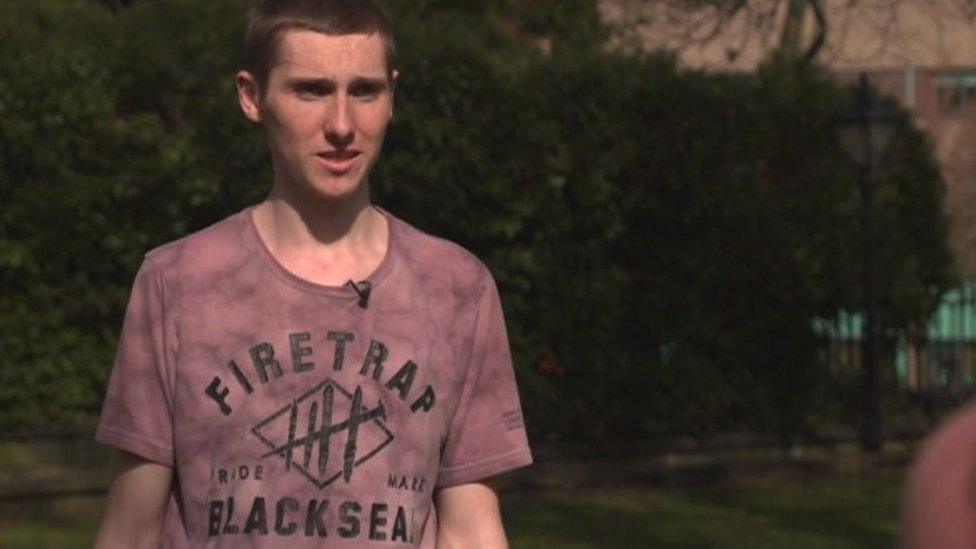London charities warn of rise in young women facing homelessness
- Published
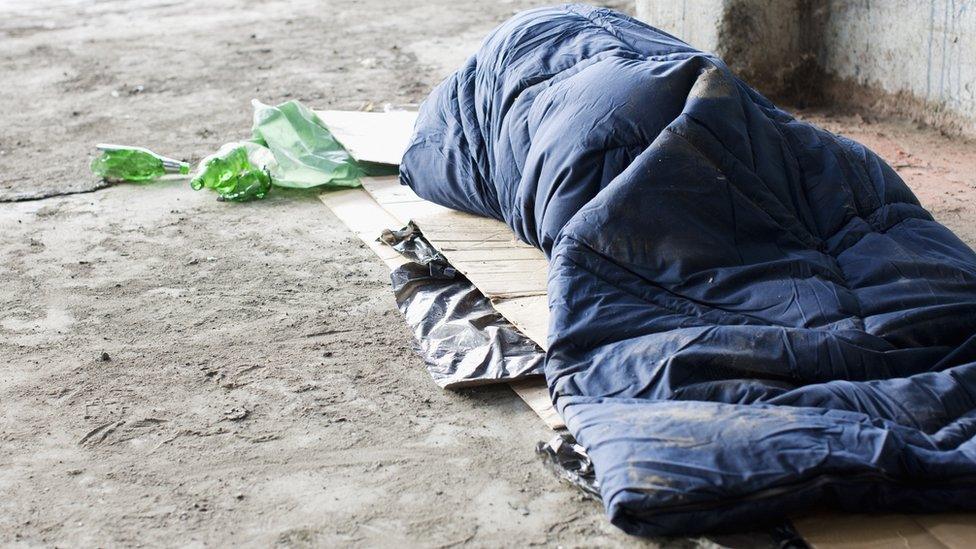
The government says tackling rough sleeping is "an absolute priority"
Two homelessness groups in London have warned that increasing numbers of young women have approached them for help as a result of the pandemic.
The New Horizon Youth Centre in King's Cross said the number of females who had been in touch had more than doubled since last year.
The Salvation Army said it had also seen a rise in demand for beds at its women-only hostel in east London.
The government said tackling rough sleeping was "an absolute priority".
The New Horizon Youth Centre, which helps vulnerable young people find homes, said it had been approached by more young women in particular this year, with 35% of those who contacted it for help between April and June being females, compared with 10% in 2020.
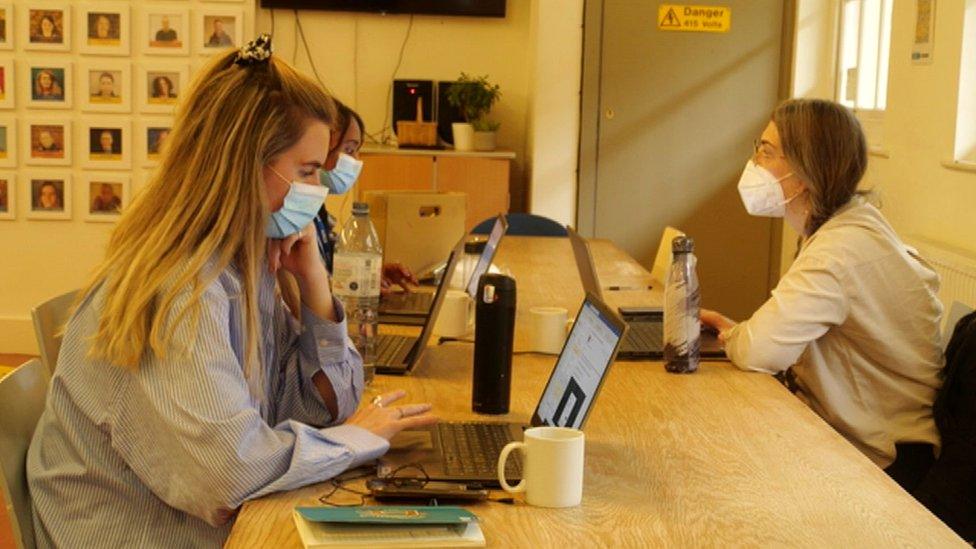
Staff at New Horizon Youth Centre try to help vulnerable young people find homes
Various reasons have been given for the rise, such as an increase in domestic violence during lockdown, job losses, and changes to friendship networks amid the pandemic - making sofa-surfing a less viable option.
The number of people struggling to pay rent has also increased. The government's Household Resilience Study, external showed that 7% of private renters in England were in arrears in April to May this year, compared with 3% last year.

'I feel like I'll be out of Wandsworth now'
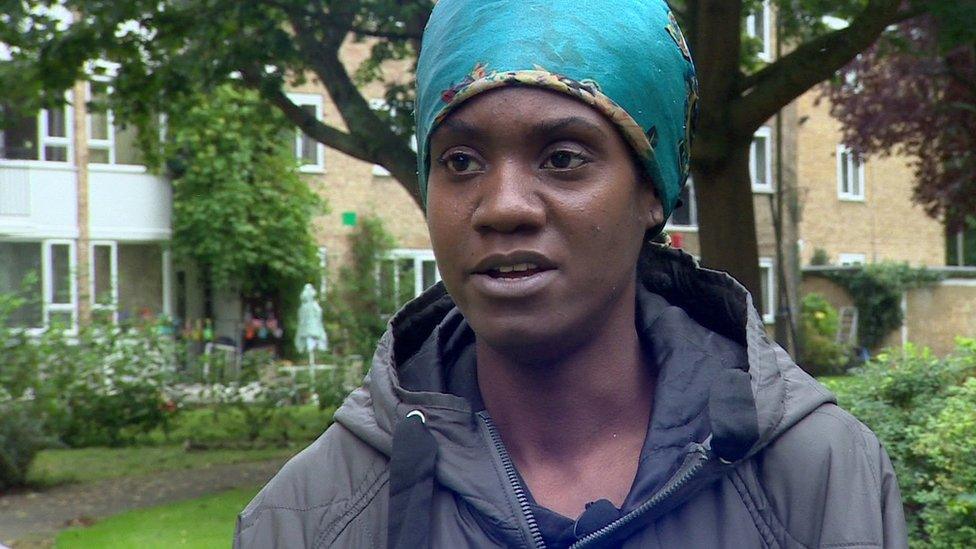
Andrea Gilbert and her teenage daughter are being evicted from their Wandsworth flat because their landlord is selling it.
"I'm very worried because we don't know where we're going to end up... I feel like I'll be out of Wandsworth now, that's the end of it," she said.
Ms Gilbert plans to stay with friends and family in the short term, but said she was worried she and her daughter could end up on the streets "because there's only so many people that will come forward and help you till eventually they get fed up of having you in their property".
"It's starting all over again and it impacts my daughter and it impacts where I want to go in my future as well."
As told to Tolu Adeoye, BBC London

New Horizon director of operations Meghan Roach said problems had existed before Covid but these had been made "very much worse" by the pandemic.
She added that the charity was "very worried" about the situation as "there is definitely a lack of suitable options" for vulnerable females who are in trouble.
The charity New Horizon is helping young homeless Londoners
Daniel Holland, from the Salvation Army, said there had been a recent increase in demand for the charity's 81-bed women-only facility.
He added that those approaching the charity included "more and more well-educated people, who perhaps had professions and careers, who now can't get jobs and may not have family available who they can sofa-surf with".
Calling for more funding to help the situation, he said: "We're really concerned we're going to see a huge increase in people experiencing homelessness... as Universal Credit cuts have come into place, as furlough has come to an end."
A government spokesperson said tackling rough sleeping and homelessness "remains an absolute priority" and that it was "spending an unprecedented £750m this year as part of our commitment to end rough sleeping during this Parliament".
They added that government action since the start of the pandemic had helped keep people in their homes by providing unprecedented financial support and banning evictions.
The ban on evictions ended in May, but the spokesperson said vulnerable households would "now be able to access a new £500m support fund to help them with essentials over the coming months", adding that the government was also providing councils with £310m through the Homelessness Prevention Grant.
- Published1 April 2021
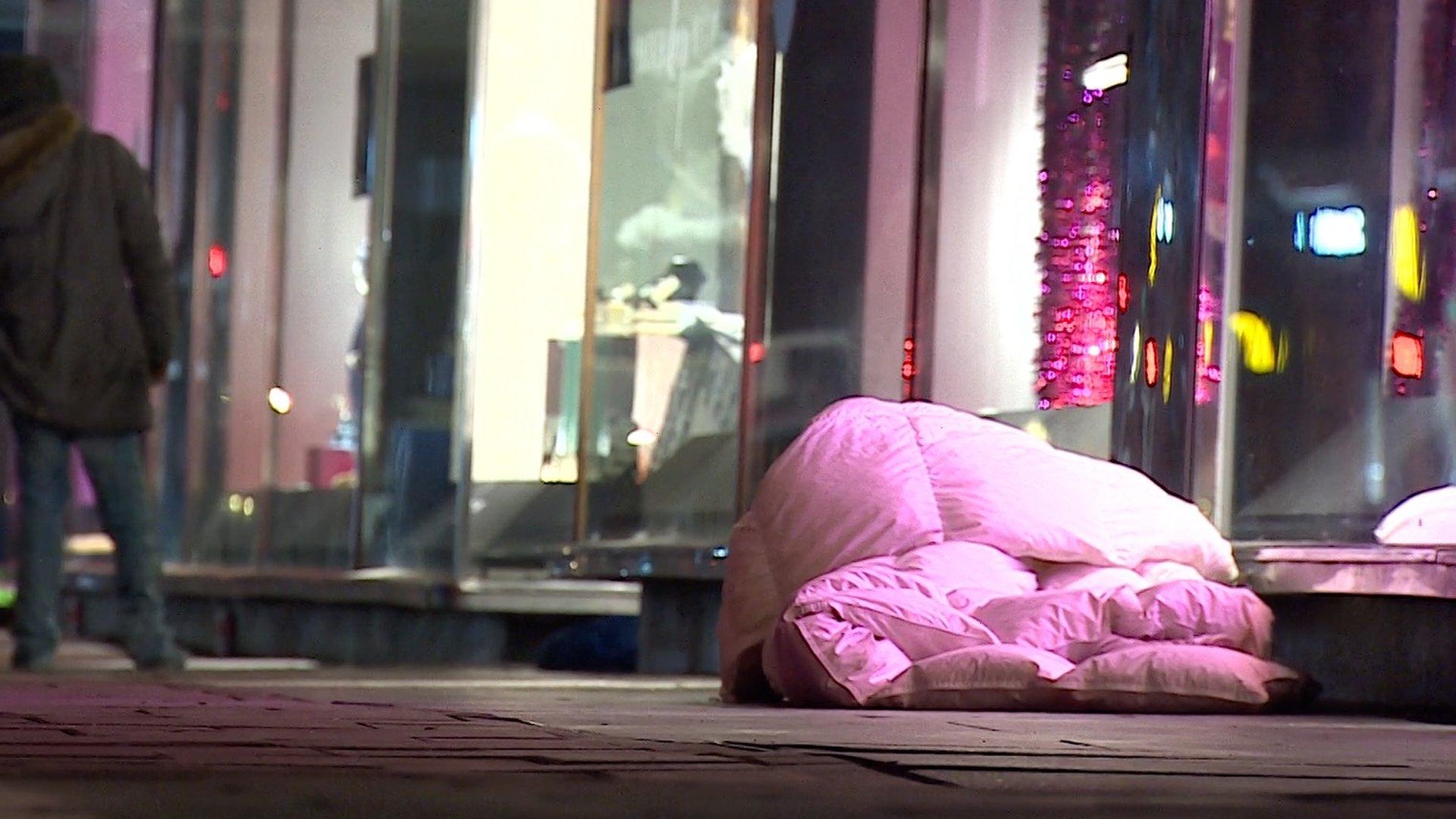
- Published15 May 2021
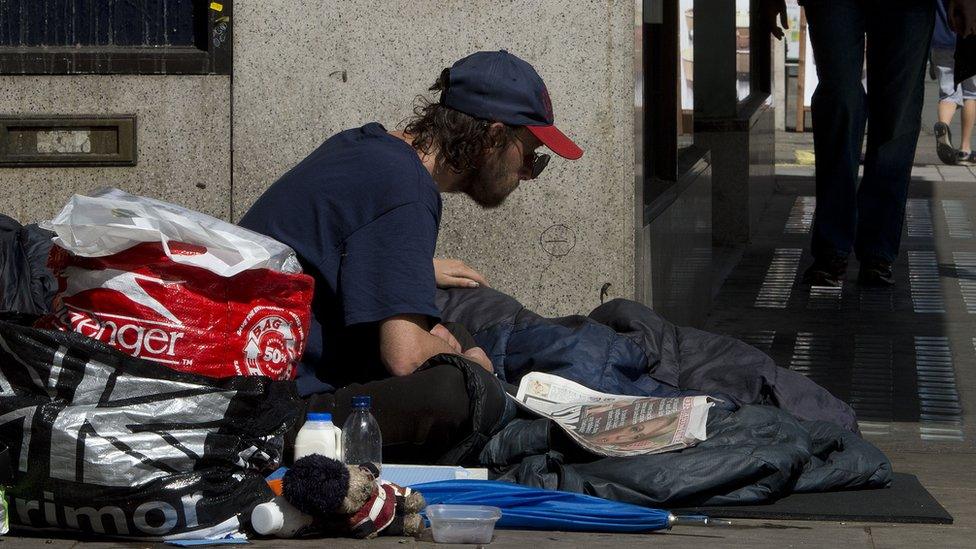
- Published28 April 2021
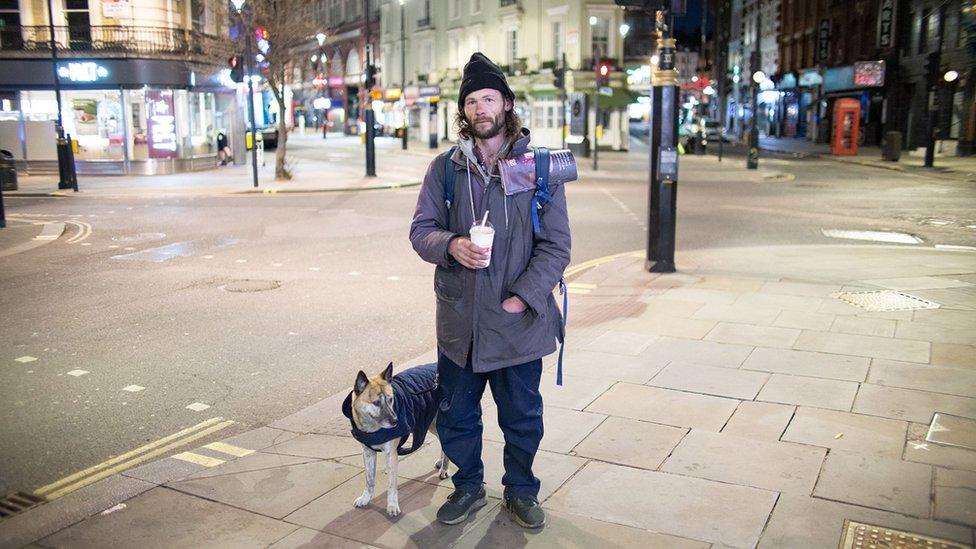
- Published20 April 2021
